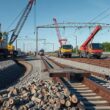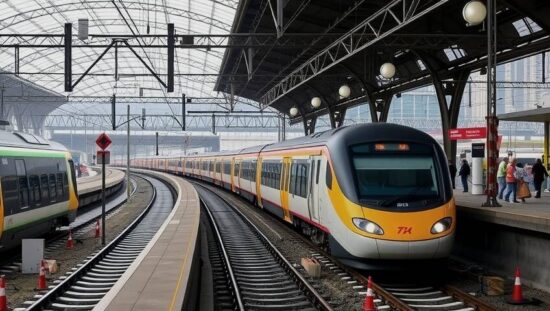DB Suffers Enormous Economic Damage in 2024 Due to Delays, Strikes, and Construction Sites in the Overburdened Railway Network
The CEO of the German Railway, Richard Lutz, estimates that the company suffered a revenue loss of 700 million euros in the long-distance traffic sector in 2024, solely due to the delays, strikes, and construction sites in the overburdened railway network.
The main reasons for the decline in punctuality, apart from the strikes in the first half of the year, were late trains, unplanned construction work, and the resulting stronger reluctance to purchase, particularly among business customers, Lutz told the “Tagesspiegel” (Saturday edition).
In addition, the company has to pay compensation to passengers for more than an hour of delay in long-distance trains. “That will be a three-digit million-euro amount” Lutz said. As a result, the DB Fernverkehr will generate a loss in 2024.
Lutz had initially set a target of achieving 70 percent punctuality for long-distance trains in 2024. However, it now appears that the company will not reach this goal, with only around 65 percent of long-distance trains expected to arrive at their destinations with a delay of less than six minutes by the end of the year. Lutz does not expect to reach the 70 percent target in 2025 either, but promises punctual trains for the holidays: “We will have everything on the tracks that rolls during the Christmas rush. We will also reduce our construction activity” Lutz said. As a result, punctuality is expected to improve in the last two weeks of December. “So, no one should worry” he added.
To resolve the punctuality crisis, the supervisory board of the railway company has decided to launch a general overhaul of eleven more main lines by the end of 2027. This decision was made after the budget committee in the German Bundestag approved the repayment of 2.7 billion euros to the company on Wednesday and the allocation of an additional 8.5 billion euros in equity capital, according to the “Tagesspiegel” report.
Lutz expressed relief over the decision: “The intensification of the crisis has also broken down mental blocks in our company and enabled radical new solutions” he said. “A full closure of a central line like the Riedbahn was previously considered a devil’s work.” Now, the renovated Riedbahn between Frankfurt and Mannheim serves as a model for the overhaul of 1,500 kilometers of the core network by the end of 2027.





